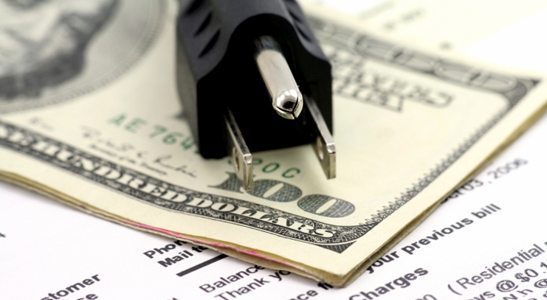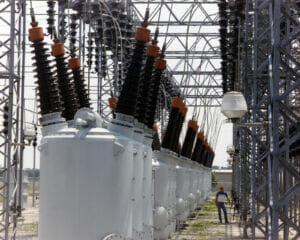The mere mention of electrical efficiency might not spark your initial excitement. However, when you realize how it directly translates to significant cost savings for your business, it’s a whole different story. The significance of electrical efficiency may not have hit you yet, but it’s a game-changer just waiting for an opportunity to influence. Join the conversation and let’s decode this money-saving mystery.
Importance of Electrical Efficiency
For starters, electrical efficiency shapes a primary part of any successful business framework. It certifies not only the reduction of electricity consumption but also a hearty decrease in operational costs. Profit maximization emerges as an achievable goal once companies start treading this route.
Who doesn’t love being tagged an environment-friendly champ? Achieving electrical efficiency allows firms to step into the green arena confidently. They can vouch for their commitment toward operating sustainably, shaping their image positively in the public view.
Efficiency, particularly electrical, confirms good equipment health too. An energy-efficient device operates effectively, ensuring longevity and reduced maintenance costs. Hence, stating that electrical efficiency boosts durability wouldn’t be an exaggeration!
Finally! Who doesn’t love a business complying with industry regulations? Compliance with energy standards doesn’t only maintain your footing but paints you positively in front of statutory bodies. Not surprisingly, this bestows you with double favors – legal benefits and saving costs.
Examining Business Energy Consumption
Understanding where your enterprise stands presently in terms of energy use is crucial. This gives you a robust base to start from while preparing your strategy for obtaining maximum electrical efficiency.
An Energy Audit serves as an excellent tool to figure out your current energy utilization. Experts conduct these to identify areas where appliances chug more power than required or if there exists any power wastage. If conducting an energy audit seems tough to you, don’t worry! Professionals like those at the local electrician can help you do this effectively – you need not hesitate to call them.
Benchmarking against your industry peers offers a prolific perspective. It helps in demystifying whether you’re on track or need to catch up with your competition regarding energy consumption. Remember, keeping tabs on the competition is always good for business.
Lastly, closely monitoring your energy bills is critical. They often give indicators of mammoth power use and hence provide red flags that need immediate attention.
Busting Electrical Efficiency Myths
Electrical Efficiency isn’t a one-size-fits-all concept. Despite its advantages, it’s shrouded in myths. Some firms think solar panels are their only gateway to efficiency. Others believe they need large investments to achieve higher efficiency levels.
The common belief that using less energy retards productivity is a widespread myth too. However, remember that reducing power wastage usually increases productivity rather than diminishing it.
Many perceive implementing energy-efficient techniques as being cumbersome, expensive, and diverting management’s focus from core tasks. On the contrary, steps to improve electrical efficiency are often simple and inexpensive yielding excellent ROIs (Return On Investment).
So make sure you’re not held back by these misconceptions but ensure you research and find credible sources before moving forward with any energy-saving measures!
Technologies Promoting Energy Efficiency
Technology is a bankable ally promoting electrical efficiency. LED lighting, for example, uses 90% less power compared to incandescent lamps. Devices like energy meters help monitor and manage your energy use better.
Cloud computing is another tool offering you an opportunity to achieve electrical efficiency. It removes the need for maintaining onsite servers, saving substantial power. Besides, modern devices come with sleep modes that allow them to switch off automatically when not in use – a boon indeed!
Programmable thermostats offer significant energy savings for businesses. They adjust temperatures automatically according to requirements, reducing power wastage due to overheating or overcooling.
Remember that IoT (Internet of Things) is the future! IoT powered devices do more than just save power – they help conserve other resources too!
Investing in Energy Efficient Equipment
Investing in energy-efficient equipment may appear challenging initially, but they’re indeed a wise investment. Energy-efficient machinery consumes less power resulting in lower electricity bills.
Often these equipment are durable and hence require fewer instances of replacements. An unexpected yet pleasant by-product of this? Fewer interruptions and a smoother workflow!
Government often provides incentives like rebates, credits, and grants to encourage firms investing in such equipment. Such financial assistance further promotes the cause of electrical efficiency while providing additional cost savings.
Last but not least, remember that investing in energy-efficient equipment builds your reputation as an eco-conscious business. This would invariably draw those customers towards you who bear similar interests!
Role of Renewable Energy Solutions
Renewable energy solutions hold the potential to serve as strong pillars supporting electrical efficiency. They offer endless benefits, notably their superior ability to consume minimal energy and reduce electricity costs considerably.
Solar panels, for example, though needing an upfront investment, pay back handsomely over time. These sun-guzzlers generate electricity while eliminating CO2 emissions. Long-lasting and low-maintenance, they prove beneficial in repowering your businesses sustainably.
Hydroelectric power (HEP), yet another renewable source, utilizes moving water to create electricity. It takes the definition of efficiency to a whole new level by generating power that’s virtually free after installation. What’s even better? HEP systems last longer than most other renewable energy solutions!
Biomass, a type of renewable energy derived from organic matter like crops, converts waste into watts. Cost-effective and consistent in performance, biomass can power your premises even during unfavorable weather conditions unlike wind or solar energy.
Energy Audit: A Critical Step
An Energy Audit stands as an unavoidable step if aiming for heightened electrical efficiency. Hiring professional auditors would reap dividends significantly as these experts comprehend where you’re potentially wasting power unnecessarily.
Theses auditors inspect your entire premise, examining all electrical devices carefully. They identify which appliances consume excessive electricity or those mis operating resulting in power wastage.
- An Inspection Report prepared post the audit details all problematic areas along with their potential improvements.
- The Return On Investment (ROI) is another crucial detail that comes out of an audit showing where upgrades could bring noticeable savings.
Taking note of electronic equipment that can be replaced with energy-efficient alternatives would help in significant cost-savings. Furthermore, you get to repair before replacements, saving periodical maintenance charges!
Effective Energy Management Strategies
Developing and implementing an Energy Management Strategy (EMS) is indispensable for improving electrical efficiency. A well-tailored EMS involves setting realistic energy-saving targets and devising ways to meet them.
- Implementing energy metering and submetering systems is a smart way to manage power consumption effectively. These devices track energy usage in real-time, enabling you to pinpoint precisely where wastage occurs and hence act accordingly.
- If staying ahead of your competitors, encouraging staff to switch off devices if not in use is essential. Implementing strict rules to encourage this behavior is a cost-effective strategy.
Frequent breakdowns could be signs of your machines requiring upgrades. Replacing these with modern, energy-efficient ones could lead to meaningful savings in the longer run.
Employee Engagement in Energy Conservation
You can expedite your journey toward electrical efficiency by engaging employees actively in conservation strategies. Creating awareness about the importance of saving power, the impact on the environment and benefits derived from it would yield extraordinary results.
Foster an energy-saving culture within your organization by conducting workshops or seminars emphasizing its importance. Encourage suggestions for improvement while rewarding those who come up with innovative energy-saving ideas.
- Introduce games or contests promoting energy conservation.
- Incorporate daily energy-saving tips into communication channels.
- Encourage workers to switch off their computers during lunch breaks or when they leave their desks.
Praise workers adhering strictly to environmental policies while openly rewarding those performing exceptionally well. Soon, you’ll see a positive impact not only on your creditors list but also on employee satisfaction levels!
Benefit Analysis of Energy Efficiency
Astonishing levels of benefits can be realized once companies embark on their electrical efficiency journey. Major benefits include a substantial reduction in power bills, the potential for profit increase, and lowered greenhouse gas emissions.
An additional layer of benefits encompasses improved working conditions leading to enhanced productivity, a better image in the public eye apart from obvious environmental positives. Identifying how equipment upgrades or operational changes can bring about cost savings is crucial.
- For instance, investing in programmable thermostats could lead to huge reductions in heating and cooling costs.
- Upgrading your lighting to LEDs cut down your electricity bills while also reducing heat gain within premises.
The benefits of becoming energy efficient stretch far beyond everyday cost savings. Hence, do not hesitate to undertake the steps toward achieving higher efficiencies.
In Conclusion
Electrical efficiency stands tall as an incredibly effective means of reducing operational overheads and optimizing profits. The journey toward achieving this might look daunting initially but is undoubtedly rewarding and beneficial in the long. Given its profound positive impacts on your bottom line and the environment, consider incorporating it into your business model sooner than later!




